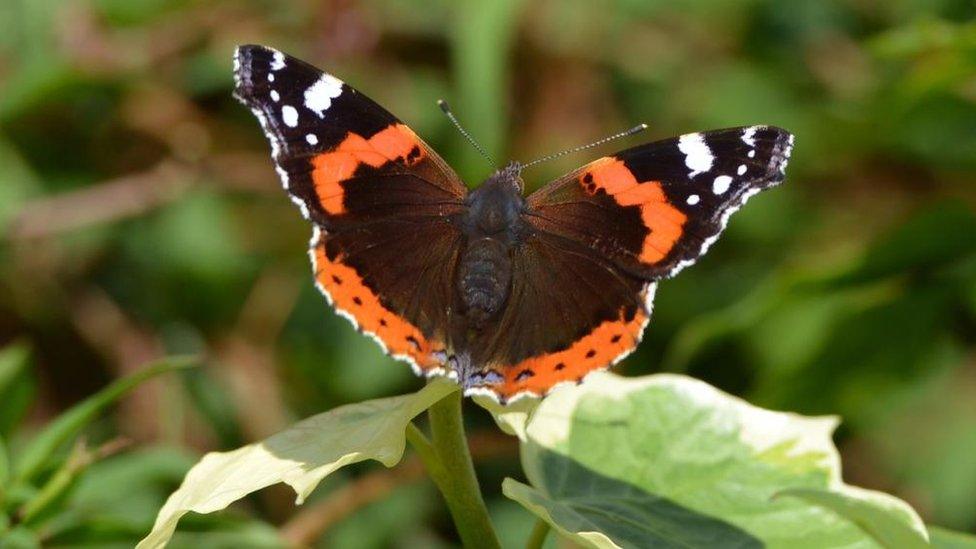Butterflies spotted in November 'very worrying'
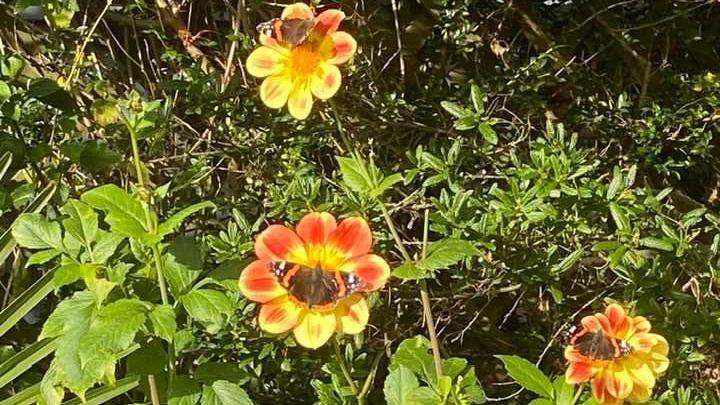
Gillian Marchant from Haddenham spotted four Red Admiral butterflies on her dahlia plants
At a glance
Four Red Admiral butterflies were spotted in Cambridgeshire in November
It is a "rarity" to see any butterflies at this time of year as they usually hibernate
Buglife says it is a "worrying" sign that nature is going "out of sync" due to climate change
- Published
A wildlife expert says the discovery of four Red Admiral butterflies in a Cambridgeshire garden in November is “very worrying”.
Gill Marchant said she was "absolutely amazed” after spotting the insects on her dahlia plants.
Paul Hetherington from Buglife Peterborough, external said the sighting was “a very uncommon occurrence for this time of year”.
He said that it is a sign of climate change and “can only be down to the fact that it’s really not got that cold yet”.
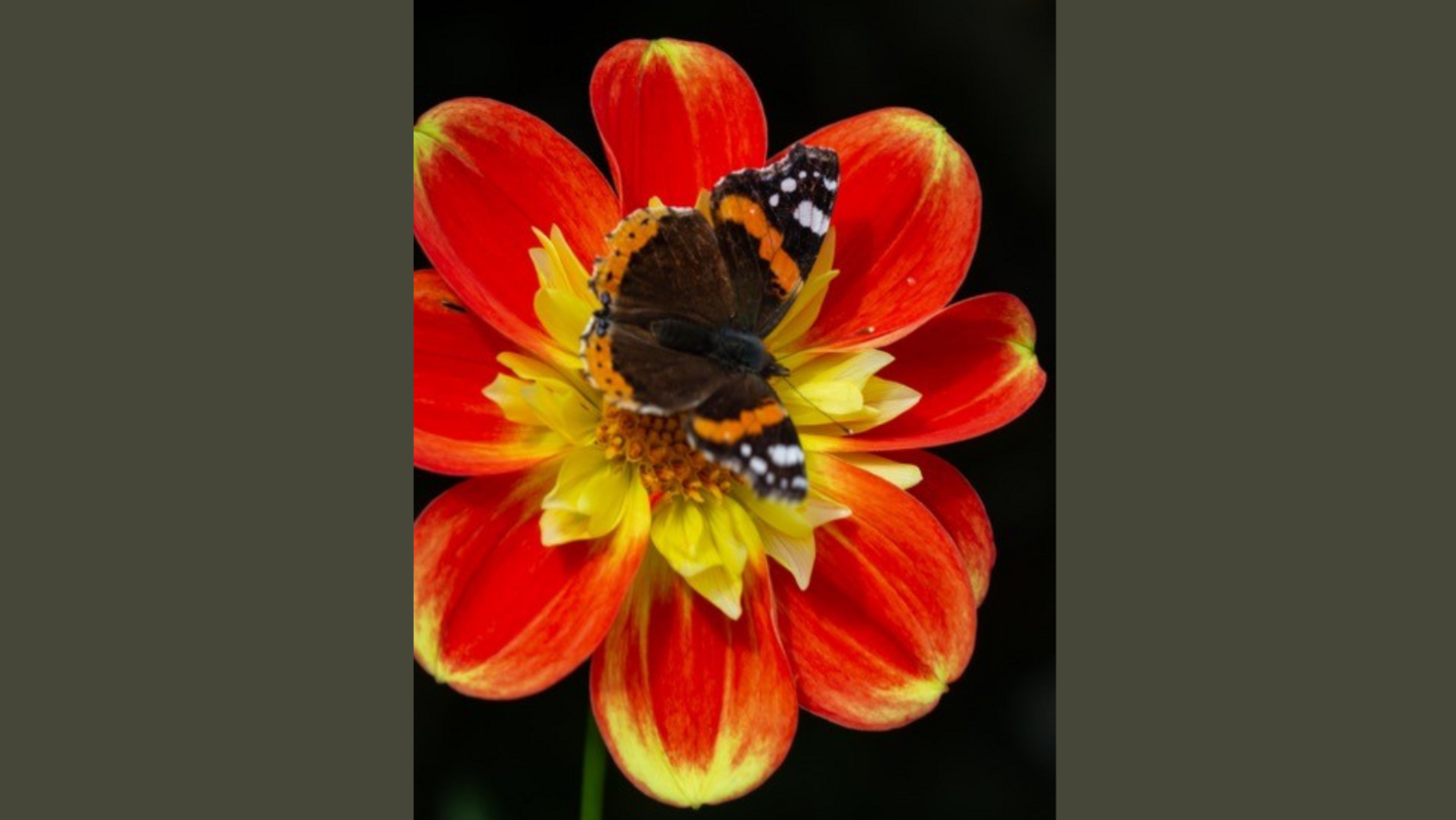
An insect expert from Buglife says it is also unusual for plants to be in flower at this time of year
Ms Marchant said she was “doing a spot of gardening one evening” when she saw the butterflies sitting on her dahlias.
She was very surprised at the discovery and had never seen any red admirals this late in the year.
“I thought things like butterflies were long gone due to the rainy days and cold nights,” she said.
"Growing up, you were lucky if you saw them beyond August. Global warming is changing a lot of the habits of these insects,” she added.
Mr Hetherington agreed that he had “never seen more than one at any one time at this time of year”, and said “even that’s a real rarity.”
He explained that by November, butterflies would typically either be hibernating or in chrysalis form, ready to hatch in the new year.
“If you look around sheds at this time of year, you’d normally see some hanging in there upside down, hibernating,” he said.
“We very much think this is all about climate change, with everything going out of sync."
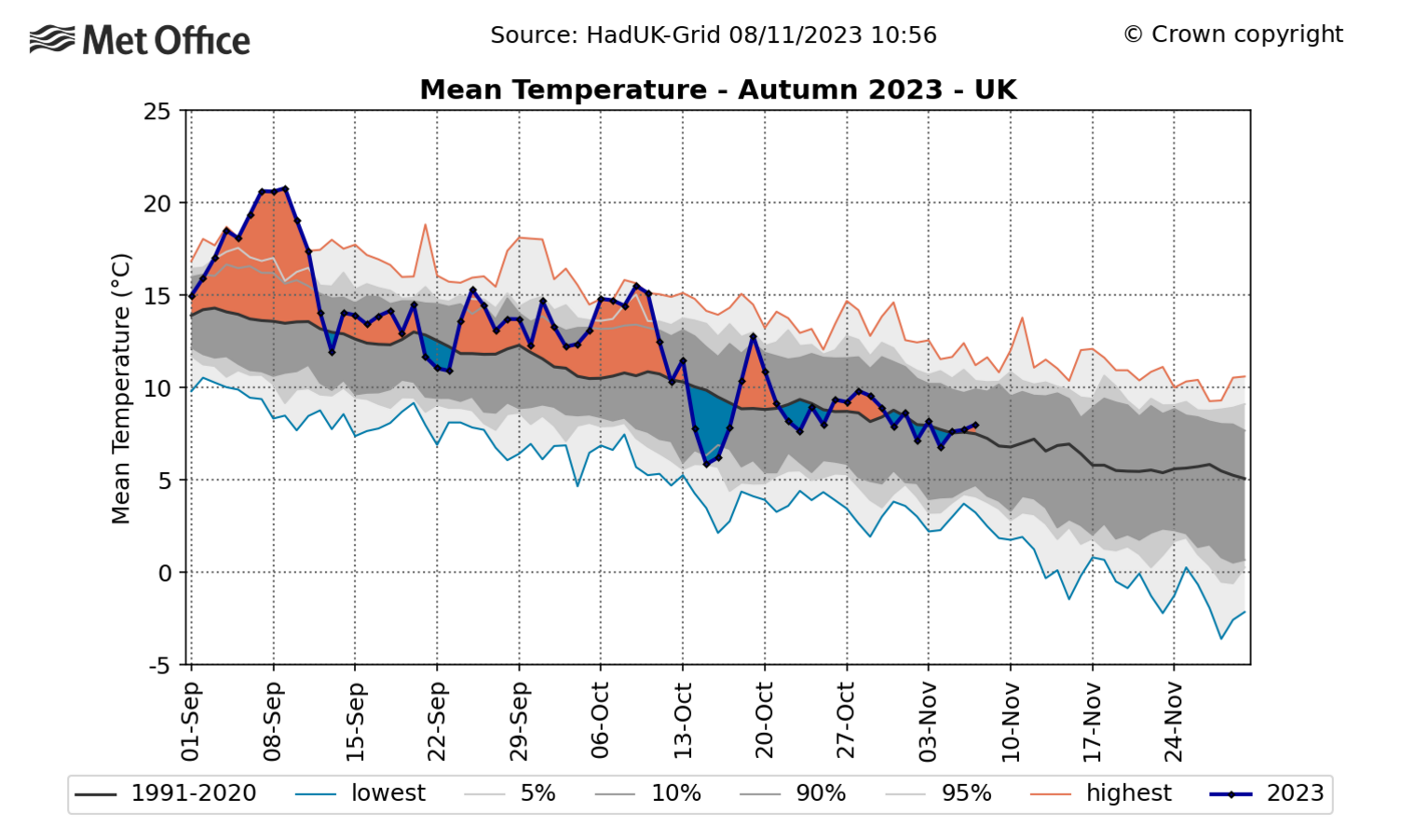
The Met Office says temperatures in the South of England have been 'above average' this autumn .
He said it was a “worrying prognosis” for when the weather does turn colder.
“If they’re out and about they’re not getting as much energy, but they need to be getting that energy and build it up so they’ve got enough in them to be able to hibernate. Will they be able to make it through the winter?”
A spokesperson for the Met Office said that autumn so far had been “relatively mild, thanks in part to the joint-warmest September on record” according to provisional Met Office statistics.
“While there have been some cooler interludes more recently, there hasn’t been a significant prolonged cold period in recent weeks,” he said.
Mr Hetherington said “Thankfully Gill had some flowers in bloom in her garden, but increasingly you’re getting a situation where our native plants are not in flower at the same time as their normal pollinators.
“Some bees are facing extinction because their flowers are not coming out when the bees are.
“It's a very worrying state of affairs.”
Follow East of England news on Facebook, external, Instagram, external and X, external. Got a story? Email eastofenglandnews@bbc.co.uk, external or WhatsApp us on 0800 169 1830
Related topics
- Published8 November 2023

- Published14 July 2023
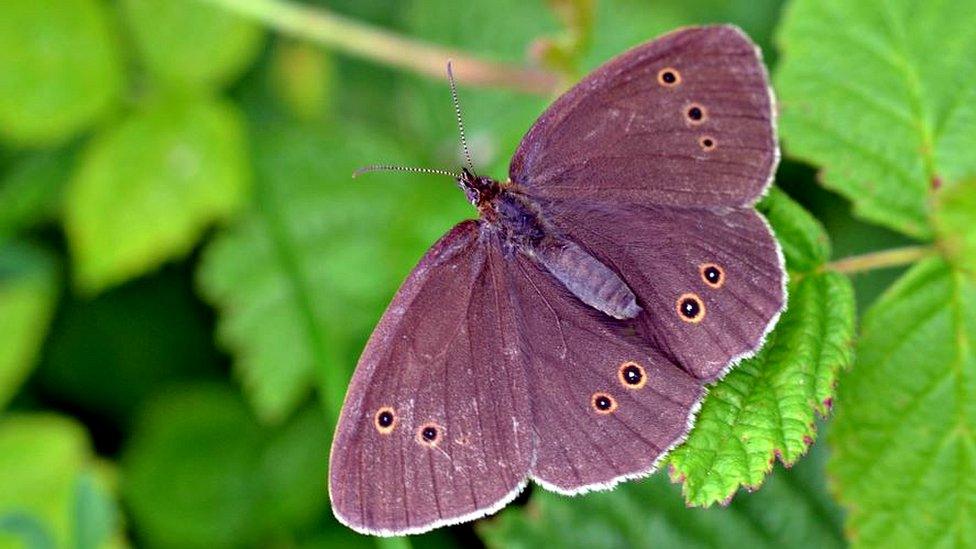
- Published31 May 2020
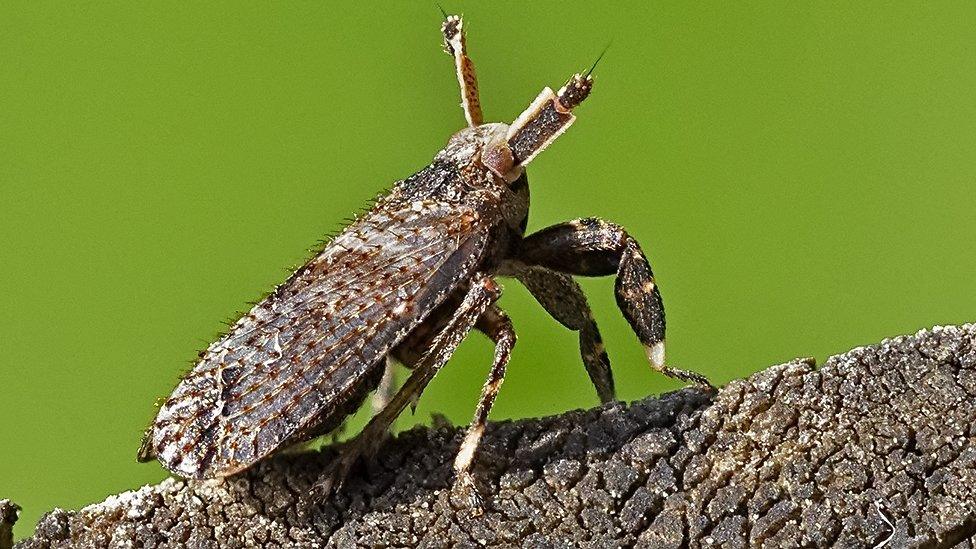
- Published3 August 2023
